Writer and neurodiversity coach Anissa Ljanta has put together a starter pack on neurodivergence for children, teens, educators and parents.
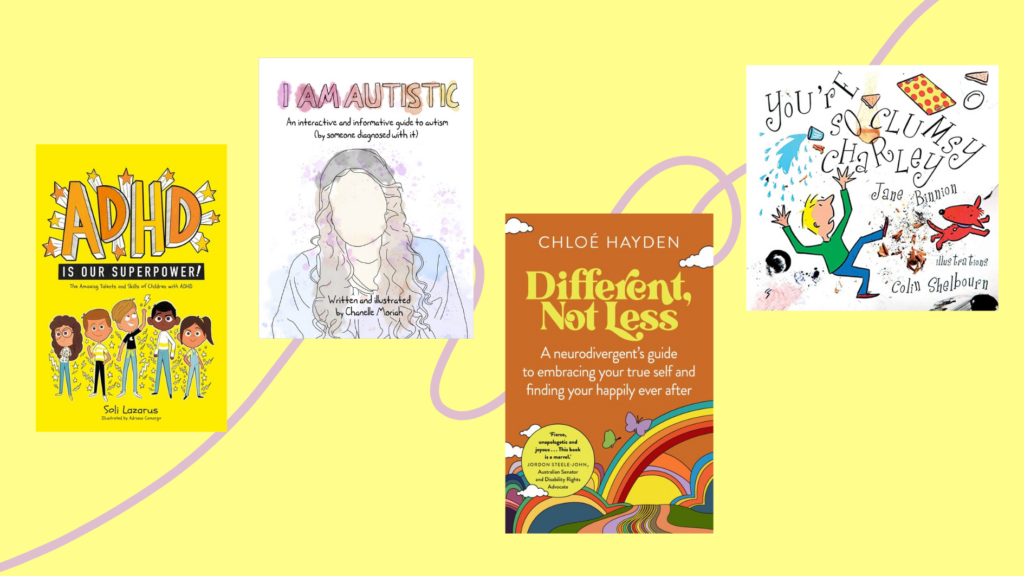
It’s a lonely thing to feel like you don’t fit in, are always in trouble at school, or chronically struggle without knowing why. Ask any neurodivergent person.
An estimated 25% of the population sits under the neurodivergent umbrella, identifying as autistic, ADHD, having dyslexia, anxiety (not your garden variety but the potentially debilitating kind), dyspraxia, FASD, dysgraphia, OCD, Tourettes or other flavours of neurodivergence.
The differently-wired chunk of the population are often of above-average intelligence (by traditional measurements), super creative, gifted innovators and talented pattern-seekers, but are unidentified and unsupported, rate high in statistics of addiction, incarceration and suicide stats, struggle in mainstream school settings, are financially challenged and have to manage anxiety and depression. The difference between struggling and having a fulfilling life is understanding and support. Books—including audiobooks, manga and other graphic books—are a powerful tool in creating a more inclusive world; educating while having fun. Win-win!
The differently-wired chunk of the population are often of above-average intelligence (by traditional measurements), super creative, gifted innovators and talented pattern-seekers
I’ve included books on a range of neurodiversity for young children and educators, a few for teens and two must-reads for parents. All are written from lived experience from a social model perspective of neurodivergence.
For Young Children

A Different Kind of Brilliant
By Louise Cummins
Self-published
An illustrated conversation between the author and her autistic son begins at the dinner table when the boy looks up from his dinner and asks, “Am I different?” The mama explains the rainbow of autism spectrum traits and uses the lives of Michelangelo, Einstein and autistic pro-surfer Clay Marzo as reassurance that autistic children can build on their strengths to create a life that works for them.
No recommended age is given but I’d say 5-9.

Some Brains: A Book Celebrating Neurodiversity
Written by Nelly Thomas
Illustrated by Cat MacInnes
Published by Some Kids’ Books
I liked this book from the first page. With judiciously creative use of words and illustrations, Some Brains outlines key autistic traits we might see in the classroom and at home: sensory sensitivities to sounds and food, deep diving into special interests and hyper-focus, emotional regulation issues, different ways of communicating, how hard school is for some neurodivergent kids—and what helps.
Non-verbal communication and more than one gender is wrapped into the storyline. The over-arching message is ‘Love me just as I am.’
It’s a book as much for grownups as kids, entertaining while educating, providing tools for challenges. A tricky balance pulled off beautifully.
Recommended for ages 0-7.
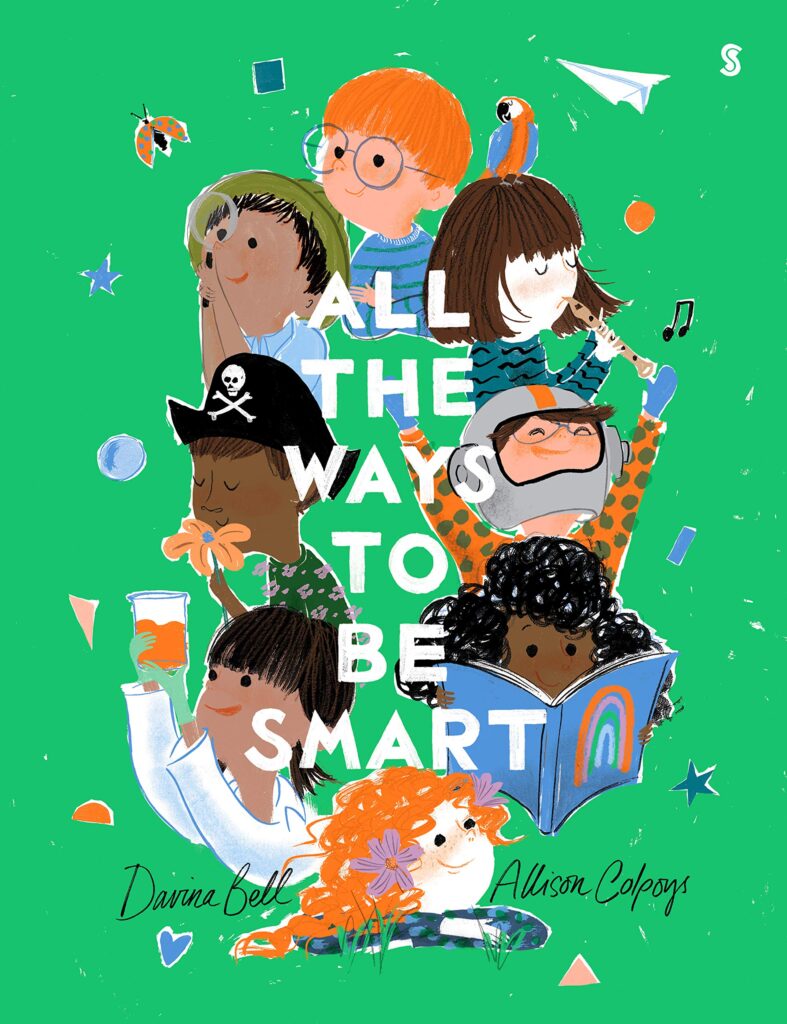
All the Ways to be Smart
Written by Davina Bell
Illustrated by Allison Colpoys
Published by Scribble Press
The title says it all, and the illustrations speak as loud as the words in this fun book. The pages are a peek into a child’s rich imagination, the magical vibe augmented by the unusual use of colour and pops of neon peach.
All the Ways to be Smart is a non-shove-down-your-throat story about the different gifts kids have to bring to the world.
Recommended for ages 3-6.
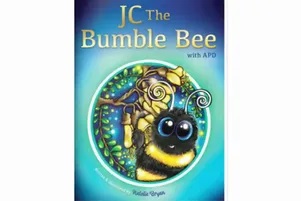
JC the Bumble Bee with APD
By Natalie Bryan
Self-published
Much care to many details went into this book by this Kiwi artist, author, mum and auntie to neurodivergent kids. The book is unapologetic about its purpose of educating about the little-known condition, Auditory Processing Disorder (APD).
I find the rhyming cadence and bee theme a bit overdone (there’s even a JC the bumblebee song at the back) but there are some bang-on moments and I’m glad it’s on the shelves. Every child needs to see themselves in a book.
Recommended for ages 5-10.
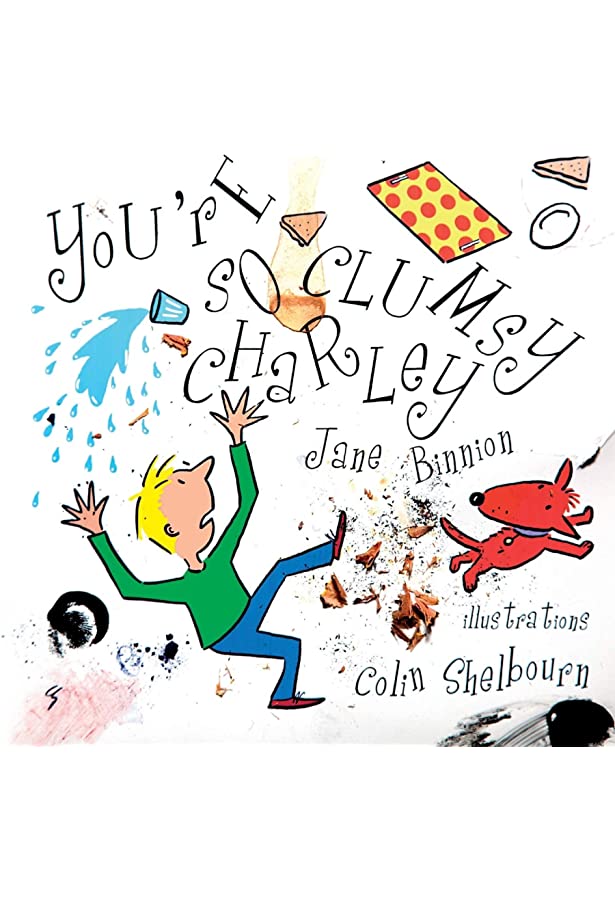
You’re so Clumsy Charley: Having Dyspraxia, Dyslexia, ADHD, Asperger’s or Autism Does Not Make You Stupid
Written by Jane Binnion
Illustrated by Colin Shelbourn
Published by Your Stories Matter
A firm favourite in my coaching practice, this book features another lesser-known neurodivergent profile: dyspraxia.
Charley’s parents understand how hard school is for him, so he and his dad jump on a train to visit lovely Auntie Bella in her house by the sea. In response to Charley beating himself up about spilling water, Bella organises a seaside picnic, inviting a diverse and fascinating crew of eight talented friends to join them. They have a blast and no one bats an eye when things get knocked over.
Auntie explains to Charley that all those talented people were just like them, neurodivergent. Realising that he is not broken and that there are others like him makes a world of difference to Charley.
This is a beautifully crafted book, using a font designed for accessibility for dyslexic folks.
Recommended for ages 6-8.
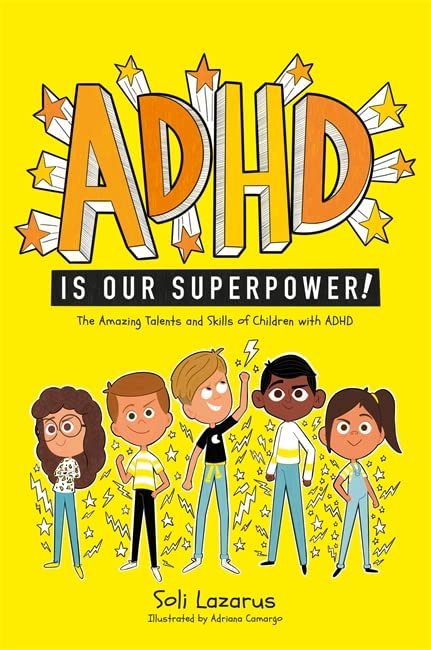
ADHD is our Superpower! The Amazing Talents and Skills of Children with ADHD
Written by Soli Lazarus
Illustrated by Adriana Camargo
Published by Jessica Kingsley Publishers
The book gives a platform to thirteen children’s lived experience stories. A little ‘taped-on’ note in each gives ways grownups can support ADHD kids.
One child struggles to write using a pen and says it would help if she could use a laptop to write or a voice recorder.
This is an upbeat book that uses simple language and covers key points on ADHD and co-occurring conditions like dyslexia, making this a good read for kids, parents and educators.
The author is a consultant supporting families with kids with ADHD and has 30 years’ experience as a teacher and SENCO, runs ADHD trainings in schools and is the parent of an ADHD child herself.
Recommended for 7-11 years.
For Teens
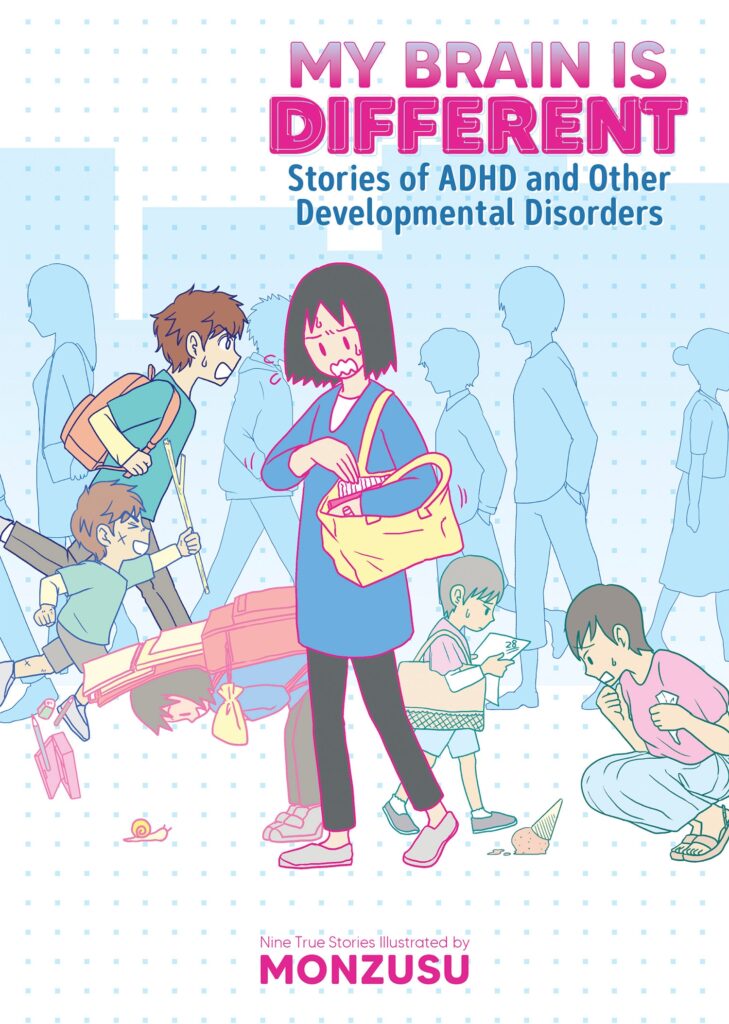
My Brain is Different: Stories of ADHD and other Developmental Disorders—Nine True Stories
Illustrated by Monzusu
Published by Takeshobo—A Seven Seas Entertainment Production
A manga collection, the book reads right to left, Japanese style, and the nine stories are lived experience stories from neurodivergent adults, chosen from a call for submissions.
The graphic format appeals to visual-spatial learners and is loved by many younger people, making it a gem in current neurodivergent literature. ADHD, Autism, various learning differences and anxiety, as well as depression, are all featured.
A heads up, there’s a bit of medicalised model language beginning from the subtitle. (Many neurodivergent folks push back at the use of the word ‘disorder,’ preferring instead ‘difference.’)
Monsuzu is ADHD and is parenting neurodivergent children. It’s the book they needed and couldn’t find.
Recommended for teen readers 13+
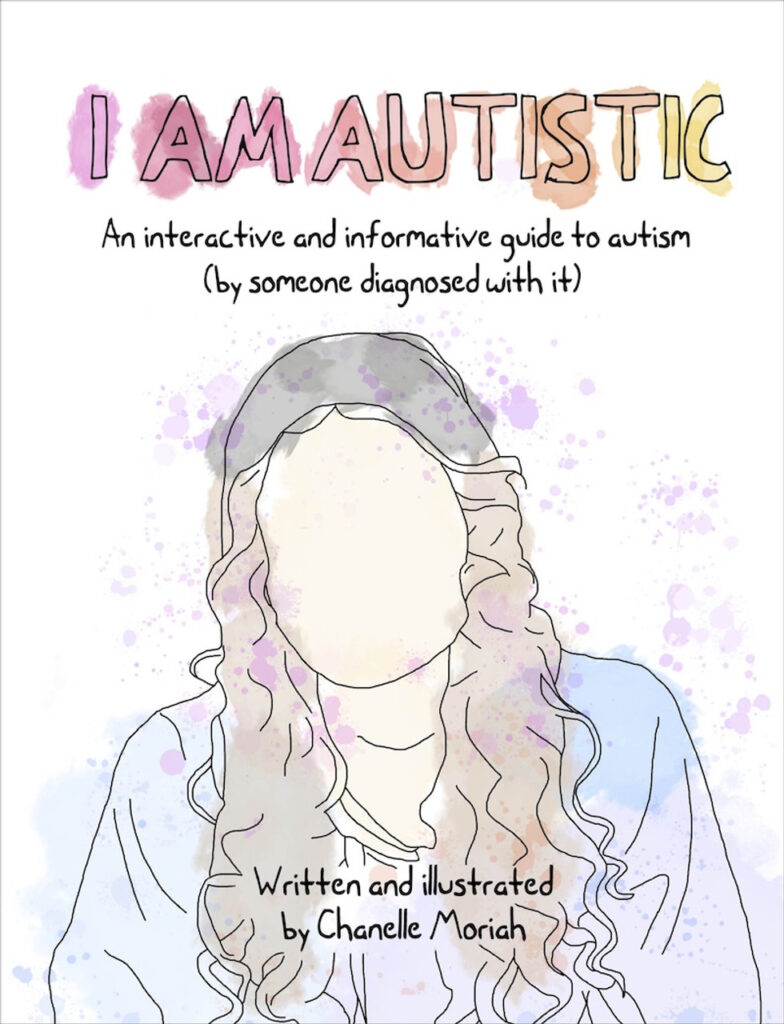
I am Autistic: An interactive and informative guide to autism (by someone diagnosed with it)
Written by Chanelle Moriah
Design by Chanelle Moriah and Megan von Staden
Published by Allen & Unwin
This best-selling book won the NZSA First Book Award in the 2022 NZ Book Awards.
Illustrated, excellent info with a clear layout using a workbook format—there’s a place for the book’s owner to write their name on the opening leaf and spaces for notes in key sections.
I’m not going to give a run-down of content. Just trust me when I say it covers everything you or your child needs to know about autism.
No recommended age but I’d place it in the teen/YA category. Having said that, I know parents using it with their ten-year-olds and adults who love it too.
For parents/caregivers

Differently Wired: Raising an Exceptional Child in a Conventional World
By Deborah Reber
Published by Workman Publishing
This book is at the top of my list for parents of neurodivergent kids to read. And read again.
Deborah Reber runs TILT Parenting Community, produces a podcast of the same name and provides resources for parents raising differently-wired children.
This book is a masterclass in reframing challenging behaviour and medicalised language to one of hope and strength-based approaches for parents. It weaves stories from personal experience and is a lively, engaging, and potentially life-changing read.
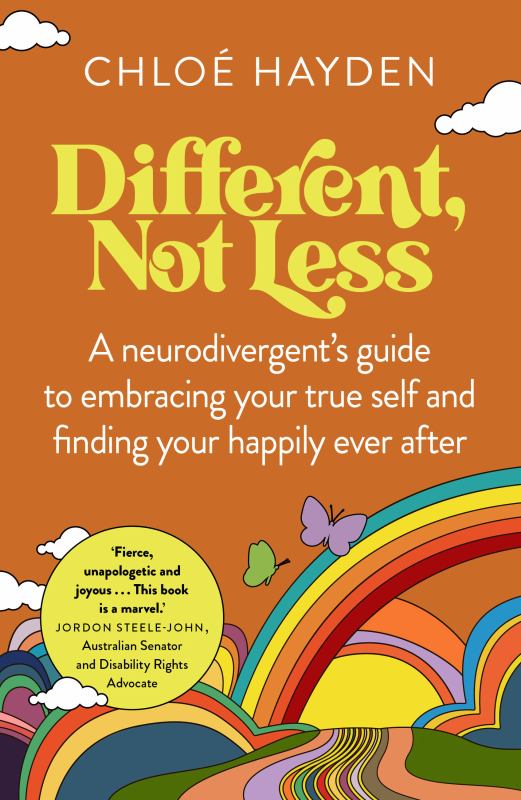
Different not Less: A neurodivergent’s guide to embracing your true self and finding your happily ever after
By Chloe Hayden
Published by Murdoch Books
Get yourself a darn good education on neurodivergence courtesy of Chloe Hayden, winner of the Marie Claire’s Australia Woman of the Year award for 2022.
The reader gets a front-row seat to lived experience on hot neurodivergent topics including sensory overload and meltdowns, sleep issues, finding your people, mental health and eating disorders, autistic shutdowns, the dangers of burnout, and stimming.
Chloe (who is autistic and ADHD) is her trademark bouncy and no-holds-barred honest self, writing about the struggles and strengths of neurodivergent folks, the process and purpose of diagnoses, and tips that seed hope.
There is a disappointing nothingness in response to searching for Aotearoa-written and relevant children’s literature around neurodivergence. Natalie Bryan has made a dent in that gap but there is plenty of space, and the demand, for more.
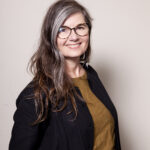
Anissa Ljanta
Anissa is an award-winning writer, ND specialist coach, equity advocate and educator. She is passionate about working with care, education and health professionals to raise awareness and support the integration of the neurodivergent perspective in practice. Her approach is fiercely strength-based.A late-diagnosed neurodivergent, Anissa is autistic and ADHDifferent. She is a single mama, accidental animal rescuer, inadvertent killer of houseplants, and maker of exceptional guava jelly. Anissa has a long and colourful history working in the not-for-profit sector—systems change and inclusion are keywords for her. Writing is how she makes sense of the world. You can check out her website atwww.anissaljanta.co.nz



